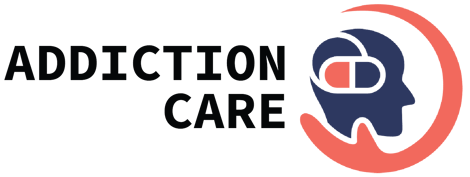
Understanding Drug Addictions: Types, Causes, and Effective Strategies for Recovery
Explore the different types of drug addictions, their impact, and proven strategies to overcome them, including medical treatments, therapy, and lifestyle changes for lasting recovery.
DRUG ADDICTION
1/2/20252 min read
Drug addiction is a complex and multifaceted issue affecting millions worldwide. Understanding the various types of drug addictions and the most effective strategies to mitigate them is crucial for individuals, families, and communities striving for recovery and well-being.
Types of Drug Addictions
Alcohol Addiction: Alcohol is one of the most commonly abused substances globally. Alcohol addiction, or alcoholism, involves a physical and psychological dependence on alcohol, leading to significant health and social consequences.
Opioid Addiction: This includes dependence on prescription painkillers (like oxycodone and hydrocodone) and illicit drugs such as heroin. Opioids are highly addictive due to their euphoric effects and can lead to severe health issues, including overdose.
Stimulant Addiction: Stimulants such as cocaine, methamphetamine, and prescription medications for attention deficit hyperactivity disorder (ADHD) are known for their addictive potential. They increase alertness and energy but can lead to cardiovascular problems and mental health disorders.
Cannabis Addiction: While often perceived as less harmful, cannabis can lead to addiction, affecting cognitive function and mental health.
Hallucinogen Addiction: Drugs like LSD and PCP fall into this category. While they may not always lead to physical dependence, they can cause psychological addiction and unpredictable behavior.
Sedative-Hypnotic Addiction: This includes addiction to benzodiazepines and barbiturates, often prescribed for anxiety and sleep disorders. Dependence can develop quickly, leading to severe withdrawal symptoms.
Mitigation Strategies
Addressing drug addiction requires a comprehensive approach tailored to the individual's specific needs. Effective strategies include:
Detoxification: The initial step involves clearing the substance from the body under medical supervision, especially important for substances like alcohol and benzodiazepines, where withdrawal can be dangerous.
Behavioral Therapies: Cognitive-behavioral therapy (CBT) helps individuals recognize and change harmful thought patterns and behaviors related to drug use. Motivational interviewing and contingency management are also effective in promoting recovery.
Medication-Assisted Treatment (MAT): Medications can be crucial in treating certain addictions. For example:
Opioid Addiction: Medications like methadone, buprenorphine, and naltrexone can reduce cravings and withdrawal symptoms.
Alcohol Addiction: Disulfiram, naltrexone, and acamprosate are commonly used to support recovery.
Support Groups: Engaging with groups like Alcoholics Anonymous (AA) or Narcotics Anonymous (NA) provides peer support and shared experiences, fostering a sense of community and accountability.
Lifestyle Changes: Incorporating healthy habits such as regular exercise, balanced nutrition, and stress management techniques can enhance overall well-being and reduce the likelihood of relapse.
Addressing Co-occurring Disorders: Many individuals with addiction also suffer from mental health disorders. Integrated treatment that addresses both issues simultaneously is essential for effective recovery.
Continuous Care and Monitoring: Addiction is a chronic condition, and ongoing support is vital. Regular follow-ups, participation in aftercare programs, and monitoring can help maintain sobriety.
Conclusion
Understanding the various types of drug addictions and implementing comprehensive, individualized mitigation strategies are key to addressing this pervasive issue. Combining medical treatment, psychological support, and lifestyle modifications offers the best chance for sustained recovery and improved quality of life.
Subscribe to our newsletter
Contact Us
+1 (619)616-2517
info@addictionrehabtexas.com
15015 Westheimer Rd
Suite I-2-193
Houston, TX 77082


